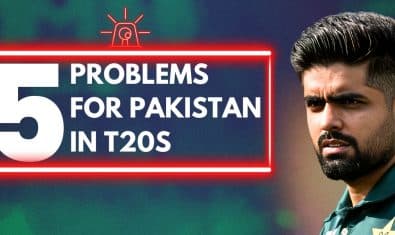There’s no denying that Wikipedia has a massive audience, including millions of followers from Pakistan. It’s a pity that topics pertinent to the country can still miss the most basic facts and figures at times. That can easily be chalked up to the lack of representation by Pakistanis who head there to read but fail to contribute back.
An online survey was conducted by Saqib Qayyum, in corroboration with Wikimedia Foundation’s Learning and Evaluation team, in order to understand the cause of this dilemma. The survey was available for everyone in Pakistan who frequented Wikipedia using a desktop computer. Available for a total of 3 days (9th November to 11th November), it was attempted (at least 70%) by 5,376 out of 7000 people who accessed it.
The outcome of the survey suggests that 3,460 out of 6,192 Pakistani readers visit the page atleast once each day. Given that about 28 million page views are registered from Pakistan compared to a whopping 18 billion from the world over, this makes for an interesting stat. What’s even more interesting is that 32% of these people were unaware that Wikipedia is non-for-profit.
Out of the 6,698 people who responded to the question regarding their gender, only 11 percent identified themselves as females. This shouldn’t come as a surprise since it lends credence to the global south analysis that identifies similar sort of gap between men and women who read and contribute to the page.
Out of the 6,723 responses related to the age of the readers, 2,490 were by those aged between 21 and 25 years, 1,427 by those aged between 16 and 20 years whereas 1,149 between 26 and 30 years. That simply goes to show that the page attracts a vast majority of young people in the country which is contrary to what’s observed in the West.
Thus, it’s not surprising to note that 3,131 respondents out of 6,650 reported they were students, 1,799 identified themselves as employees, 785 self-employed while 446 were still looking for jobs. In regards to level of education, 2,202 out of the 6,636 respondents claimed to have a Bachelor’s degree, 1,347 reported to have attained a Master’s degree whereas 939 said they completed secondary education.
4,257 people out of 6,182 chose ‘for information and knowledge’ as their reason to frequent Wikipedia, 4,178 selected ‘for study and research’, 3,226 claimed ‘for personal curiosity and interest’, 1,348 picked ‘for fun and hobby’ whereas 1,340 settled with ‘for work’.
When asked about how good a resource they feel Wikipedia is, 63% chose ‘Wikipedia is a popular source of information’, 43% selected ‘Wikipedia has good quality content’, 41% believed they ‘always find what they are looking for’, 37% claimed they ‘trust Wikipedia’ whereas 30% said ‘Wikipedia articles are most up-to-date’.
Wikipedia is available in more than 285 languages which include: Urdu, Pashto, Punjabi and Sindhi languages. However, most readers from Pakistan only frequent the English variant of the page. Interestingly, 2,320 out of 6,071 respondents weren’t even aware there existed a version in regional languages for Pakistan whereas the 2,835 that were aware prefer to use the English variant anyway.
784 out of 849 people who use non-English versions are those who read Urdu Wikipedia while 144 frequent Punjabi Wikipedia. In addition, 2,907 out of 5,904 respondents believe it’s important/very important that Wikipedia articles are available in Pakistani languages.
It turns out only about 7000 edits out of 2.9 million across the world are registered from Pakistan. When asked if they were aware of the editing functionality, 1,073 out of 5,895 responded they were unaware one can edit, 3,580 admitted they were aware but didn’t bother, 364 claimed to have edited the page whereas 877 mentioned they used to edit but didn’t do so in the recent past.
Out of the 1,184 people who edit at present or used to do so in the past, 735 claimed they fancy the idea of sharing their knowledge, 654 just feel the urge to fix an error the moment they spot it, 432 are of the view information has to be freely available to everyone whereas 249 do so in respect of Wikipedia’s stance on collaboration and openness.
























no comments on Wiki article. Shows how much interest people take in Wiki??
I think you didn’t read the research where It was claimed that negative news gives more impression and traffic. You can observe this even on Propakistani. Positive news has only a few comments.
no, i haven’t read said research. Give its link.
Nice Article
Interesting Information. It shows Pakistan is on its way to become more technology oriented
Wikipedia is not comsidered authentic.
*Wikipedia is not considered authentic…